Benefits
If you’re ready to end the dynamic of struggling with tub waste drain and overflow in your bathroom, I have the perfect guide for you. With my complete guide, you can say goodbye to annoying and time-consuming DIY repair projects and head toward a permanent resolution of your plumbing issues. Years of research have gone into creating this guide.
What is a Standard Bathtub Waste Drain and Overflow?
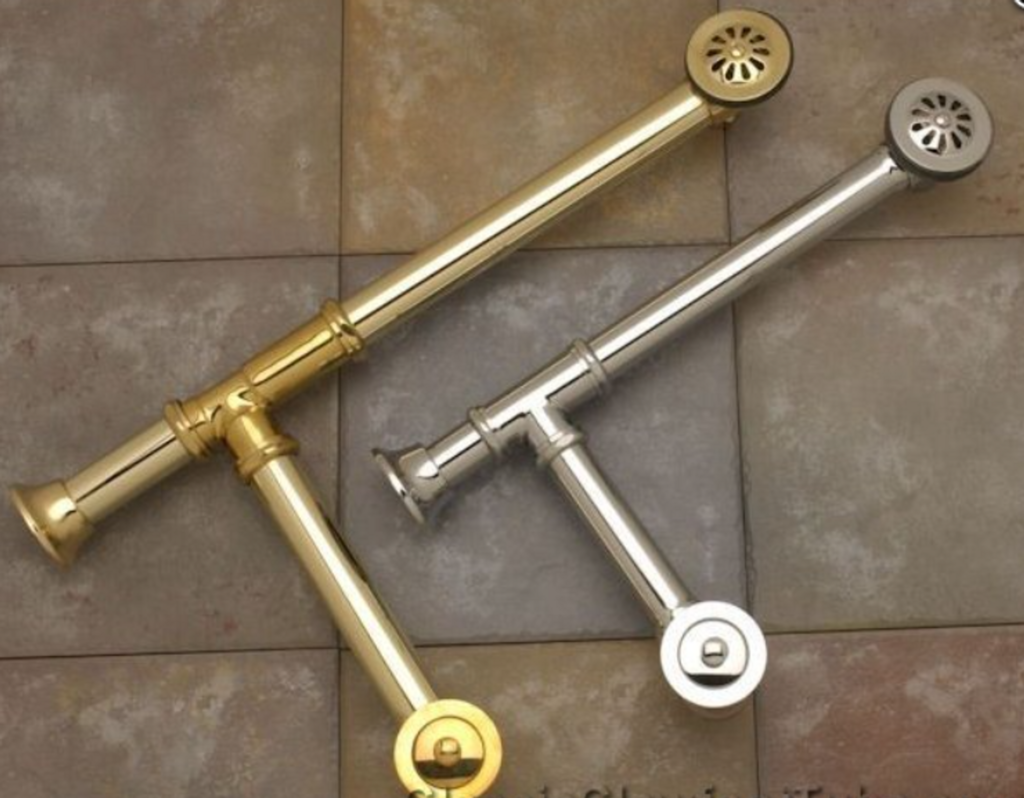
Have you ever noticed a small gap near the top of your bathtub, usually beneath the faucet? That’s called an overflow! It helps to protect against hazardous flooding in case water levels exceed their average capacity or someone accidentally leaves taps running. If this happens, excess liquid will be released through the opening and into a drain pipe that carries it away from your home – preventing any unwanted messes from being made by overflowing water!
Contrarily, the tub waste is situated at the bottom of the bathtub and allows users to drain water after bathing. This tube usually features a stopper or plug that can be removed so that liquid flows out of your bathing area and put back in place if you want to keep any remaining water inside.
When paired, a standard overflow and tub waste are integral to any bathtub’s plumbing system. This duo ensures that your tub will fill up perfectly for those luxurious baths you’ve wanted to take – plus, the water can be drained away quickly when you’re done!
Find the Right Bathtub Drain Assembly
Kenny Handyman Investor
Choosing the correct bathtub drain assembly is essential for any repairs or replacements. Each type requires meticulous attention, and ensuring you have the perfect fit for maximum performance and durability is critical. Don’t be hasty in your decision – select wisely!
- The pipe assembly material
- The actuator type
- The drain location measurements
- The drain stopper type
Assembly Materials
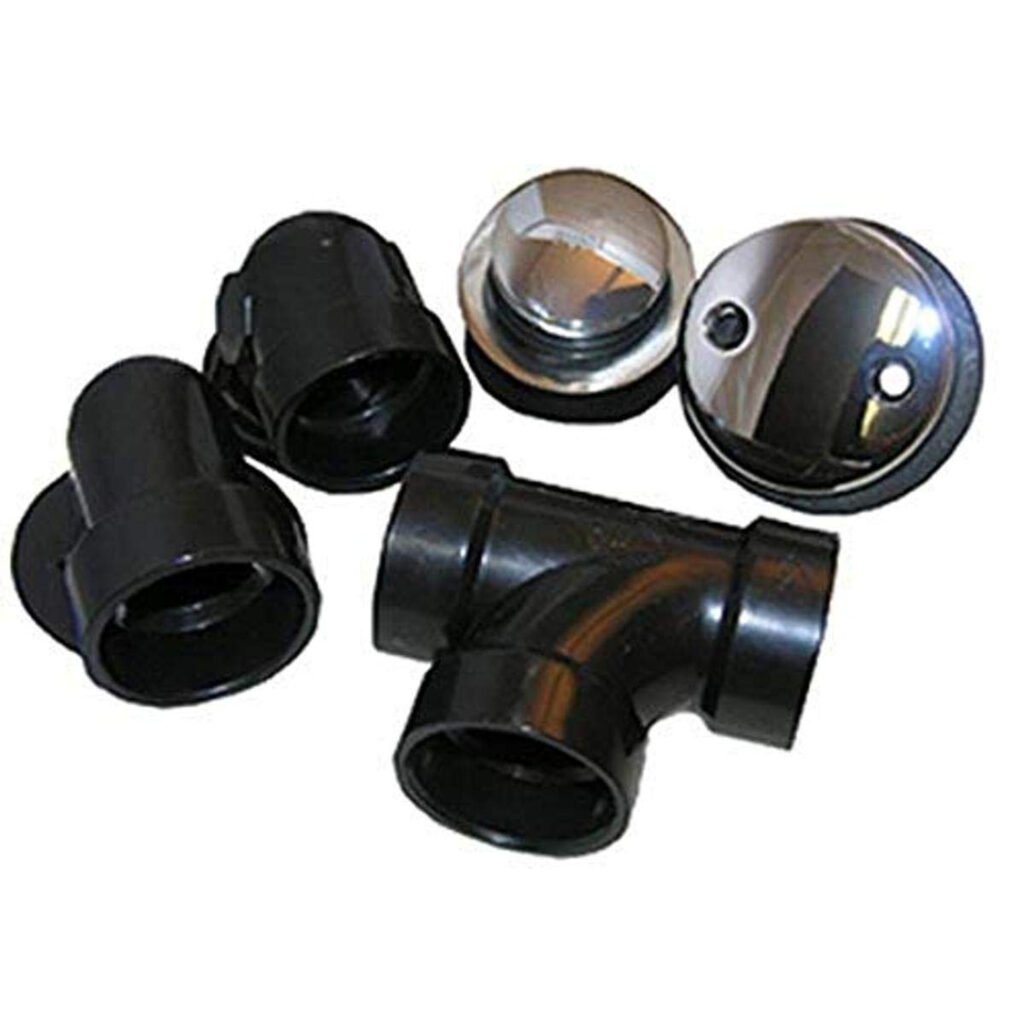
Before selecting the material for your bathtub drain assembly, consider its technical data to guarantee it is secure, resilient, and compatible with your plumbing system. Listed below are details of some prevalent materials used in these assemblies:
- PVC: PVC is the optimal material for plumbing applications due to its advantageous properties. As a lightweight and durable plastic with an impressive melting point of 212°F (100°C), it has corrosion resistance and most chemicals, making it safe in environments where water may be present. Drain pipes from this substance are offered in sizes between 1 1/4 inches and 2 inches in diameter.
- ABS: ABS plastic is comparable to PVC but has a better heat tolerance and lower susceptibility to warping. In addition, its melting point of 221°F (105°C) and its chemical resistance property make this material an ideal choice for drain pipes that are available in sizes ranging from 1 1/4 inches up to 2 inches in diameter.
- Copper: Copper is renowned for its strength, sturdiness, and resistance to corrosion, making it ideal for plumbing operations. Boasting a melting point of 1,984°F (1,085°C), copper also takes minor damage from most chemicals. Such pipes come in sizes between 1 1/4 inches and 2 inches in diameter – so there’s always one that fits the bill!
- Brass: Boasting a melting point of 1,652°F (900°C) and extraordinary resistance to most substances, brass is crafted from copper and zinc, thus creating an incomparably sturdy alloy. Brass drain pipes are typically widely obtainable in sizes ranging between 1¼ inch – 2 inches in diameter.
Here is a table summarizing the technical data for some common materials used in bathtub drain assemblies:
| Material | Melting Point | Chemical Resistance | Available Sizes |
|---|---|---|---|
| PVC | 212°F (100°C) | Resistant | 1 1/4″ – 2″ |
| ABS | 221°F (105°C) | Resistant | 1 1/4″ – 2″ |
| Copper | 1,984°F (1,085°C) | Highly resistant | 1 1/4″ – 2″ |
| Brass | 1,652°F (900°C) | Highly resistant | 1 1/4″ – 2″ |
If you want to install a bathtub drain assembly, PVC and ABS should be at the top of your list based on their affordability, ease of installation, and resistance against most chemicals. However, if you need something with more excellent durability that can withstand corrosion better than these materials provide, such as copper or brass, although more expensive – it could be an ideal choice for you. Therefore when selecting which material is best for your plumbing system, consider its compatibility, longevity, and installation cost before deciding.
The actuator type
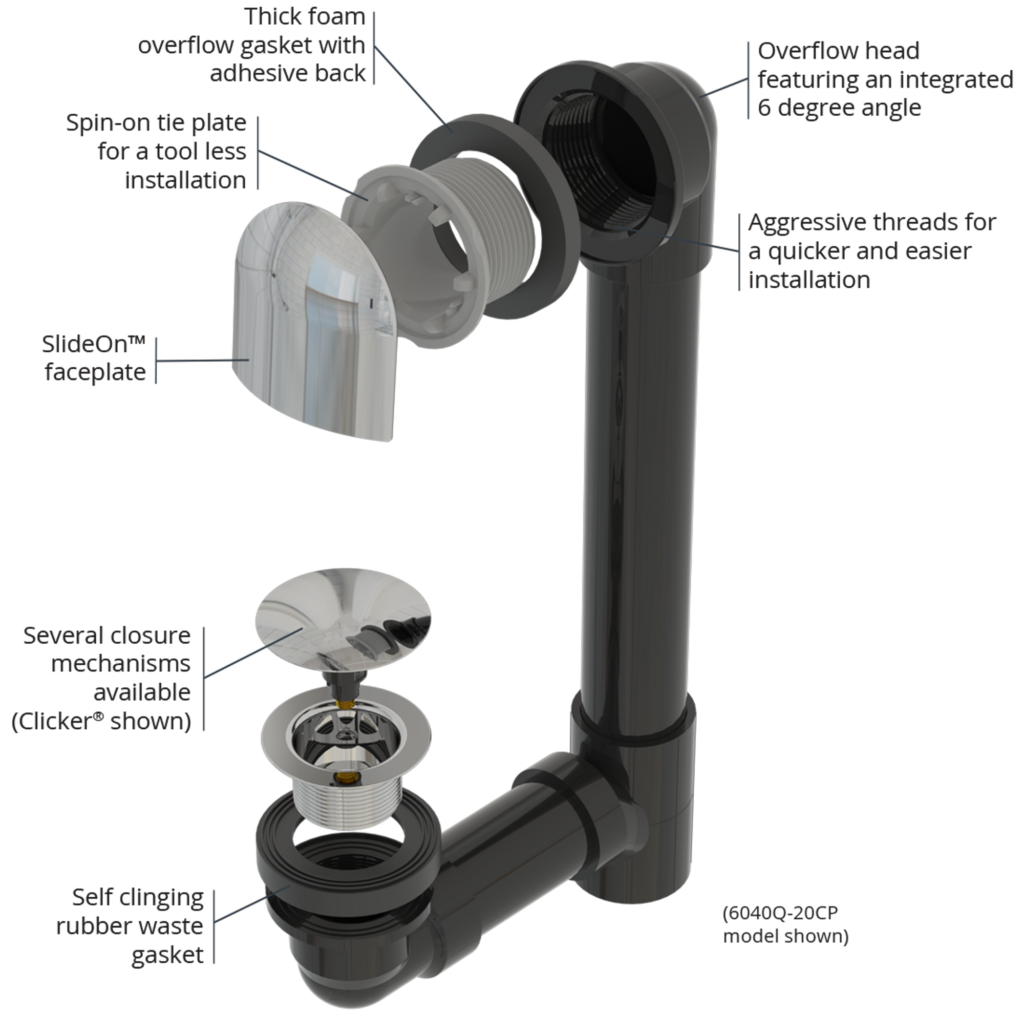
Finding the proper actuator for your bathtub drain assembly involves considering numerous factors, such as cost-effectiveness, ease of use, and location. To help you make an informed decision, here are some numerical figures corresponding to the most widespread types of actuators:
- Twist-and-close: Although the most economical option, this actuator is often challenging to operate in a spot that’s hard to access. Yet, it remains an appealing choice for many people at only $5-$10 and with easy installation procedures.
- Push-and-pull: This actuator is cost-effective and typically costs between $10-$20. It pushes the stopper down to close the drain and lifts it to open it. The only downside of this actuator type is its difficulty operating when the drain isn’t accessible quickly or easily.
- Lift-and-turn: Actuators of this type are often more costly than twist-and-close and push-and-pull models, usually amounting to $10-$30. Its simplistic operation process makes it a worthwhile purchase for those seeking a trustworthy and user-friendly actuator, while the tight seal it provides adds further value.
- Toe-tap: If you’re searching for a hands-free or mobility-friendly approach to draining, this actuator is a perfect choice! It’s easy and convenient to use by simply tapping with your foot on the stopper – no extra effort is required. Although it may be a shock that it costs based on raw materials and quantity.
To choose the right actuator type for your bathtub drain assembly, you should evaluate your personal preference, and location of the drain, and what’s within reach financially. Consulting with a reliable plumber or contractor will also give you peace of mind in selecting an appropriate option that meets your needs.
Here’s a table summarizing the numerical data for the different actuator types:
| Actuator Type | Cost | Ease of Use | Location of Drain |
|---|---|---|---|
| Twist-and-close | OEM | Difficult to operate if the drain is not easily accessible | Any |
| Push-and-pull | OEM | Difficult to operate if drain is not easily accessible | Any |
| Lift-and-turn | OEM | Easy to operate and provides a more secure seal | Recommended for hard-to-reach drains |
| Toe-tap | OEM | Easiest to operate, hands-free option | Recommended for hard-to-reach drains or limited mobility |
The drain location measurements
Ensuring that your bathtub drain assembly fits ideally can be a challenging task. To make it easier, take accurate measurements of the drain location to guarantee proper fit and function. Here are some essential dimensions you should consider:
- Center of the drain to the wall: Gauge the space between the center of the gutter and wall to guarantee that all overflow pipes, plus other necessary items fit correctly. This distance varies depending on tub size and shape; it generally goes from 10-14 inches.
- Center of the drain to the overflow: It is imperative to correctly measure the distance from the center of your gutter to its flood so that all components can work properly and prevent water leakage into other areas. Generally, this range should be between 9-12 inches for optimal functionality.
- Diameter of the drain: You must measure the diameter of your tub’s drain before buying a compatible assembly. Standard drains are generally 1 1/2 or 1 3/8 inches in size, so check for this measurement when shopping around!
- Depth of the drain: Make sure to accurately measure the depth of your drain before purchasing a drain assembly. Lift-and-turn and toe-tap actuators must have enough clearance, so this measurement is especially salient when selecting a compatible product; typically, drains range from 2 to 3 inches in depth.
To assist you in making the most informed decision when selecting a bathtub drain assembly, here’s an update to our initial response with a table outlining the critical measurements to keep in mind:
| Key Measurements | Range |
|---|---|
| Center of the drain to the wall | 10-14 inches |
| Center of the drain to the overflow | 9-12 inches |
| Diameter of the drain | 1 1/2 or 1 3/8 inches |
| Depth of the drain | 2-3 inches |
Drain stopper types
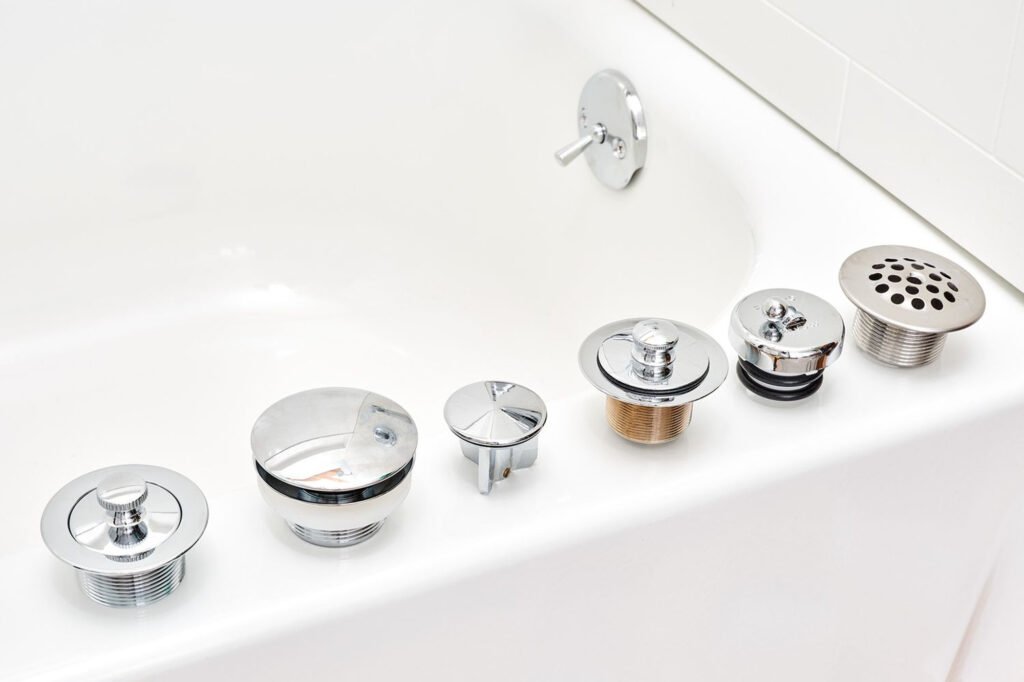
With so many bathtub drain assemblies to choose from, it’s essential to determine the correct type of drain stopper that best suits your needs. To help narrow down this selection process, here are some details on a few popular styles:
Lift-and-turn: Featuring a diameter of 2-7/16 inches and a height of 2-3/4 inches, this lift-and-turn compatible drain stopper provides an airtight seal that can’t be beaten. The perfect choice for sinks in need of dependable coverage!
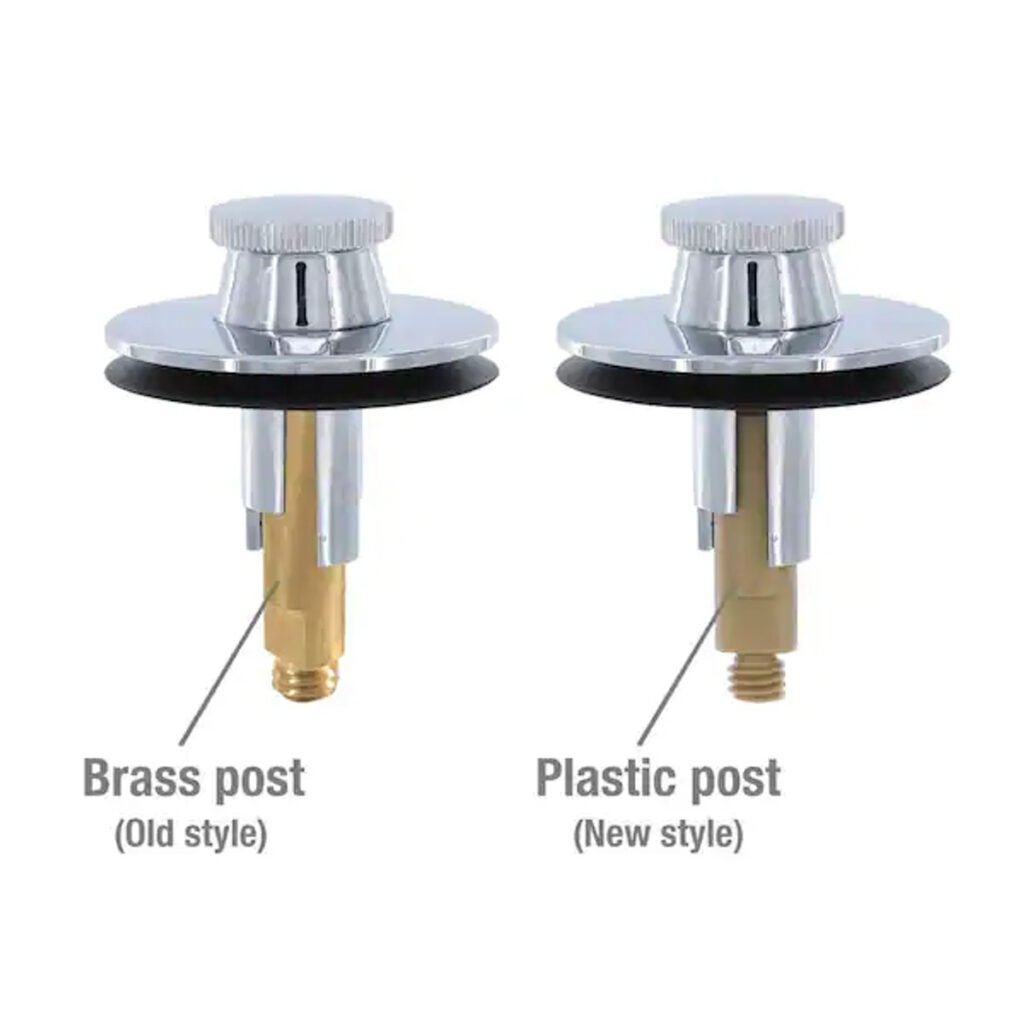
Push-and-pull: With a diameter of 2-5/16 inches and a height of 2-7/16 inches, this type of drain stopper is perfect for standard push-and-pull actuators. It’s simple to operate, yet it may be less potent in providing a secure seal compared to other options.
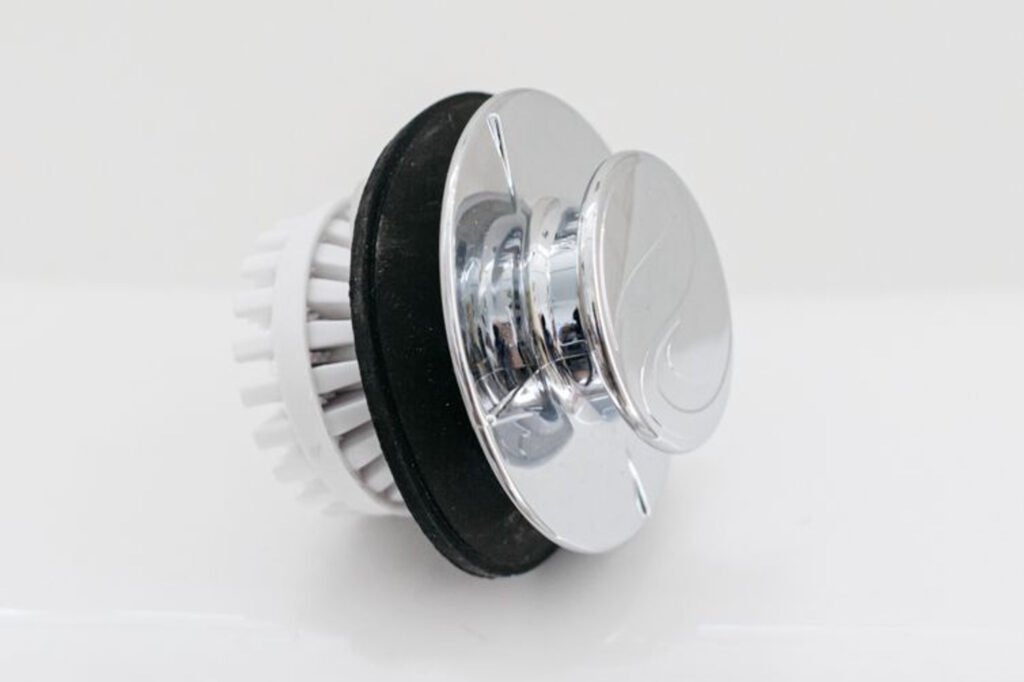
Pop-up: This particular drain stopper is 2-3/4 inches long and stands 3-5/16 inches tall, making it perfect for use with toe-tap actuators while ensuring an airtight seal.
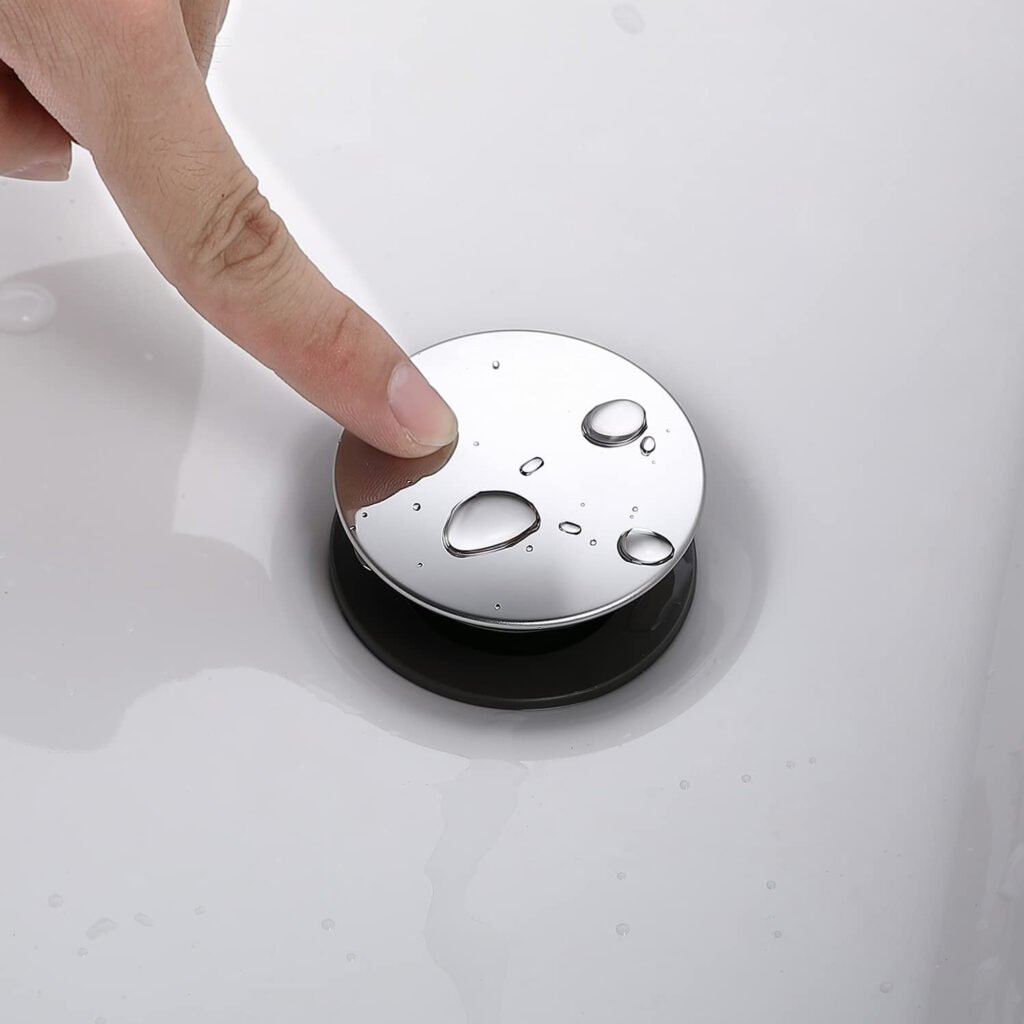
Trip-lever: This popular drain stopper measures 2-1/8 inches in diameter and stands 3-1/8 inches tall, making it easily compatible with trip lever actuators. Plus, its simple design allows for a secure seal and hassle-free operation.
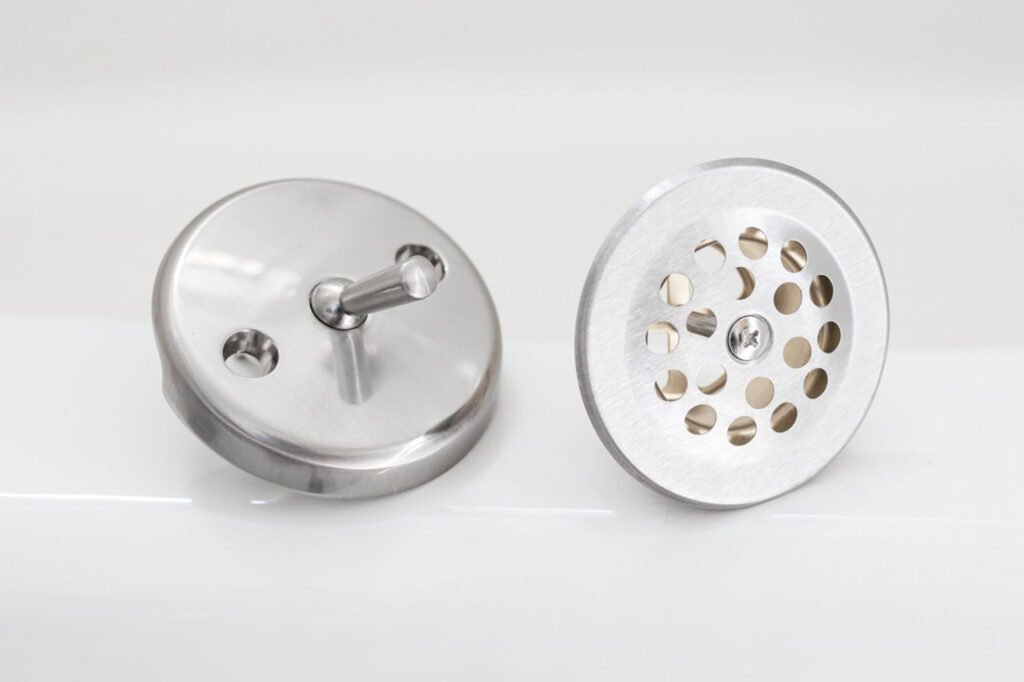
Choosing the right drain stopper type for your project can be challenging. An array of options is available, from lift-and-turn and pop-up stoppers that offer excellent security to push-and-pull or trip-more convenient lever models. When selecting one, consider the actuator type you are using, its diameter and height, and any specific preference you may have. Consulting with an experienced plumber could also prove helpful in this endeavor.
For those in need of a deeper understanding, the below table offers valid technical data to compare among some of the most popular drain stopper types:
| Drain Stopper Type | Diameter | Height |
|---|---|---|
| Lift-and-turn | 2-7/16 inches | 2-3/4 inches |
| Push-and-pull | 2-5/16 inches | 2-7/16 inches |
| Pop-up | 2-3/4 inches | 3-5/16 inches |
| Trip-lever | 2-1/8 inches | 3-1/8 inches |
Wrapping up the above, ending with CTA to Hofen sanitary (supplier)
Suppose you need help with any of these measurements or assistance selecting the proper bathtub drain assembly for your specific needs. In that case, consulting with a professional plumber or contractor is essential. The tables in this article provide key information about each measurement and type of drain stopper to consider. Still, it’s best always to consult a professional when dealing with bathtub drains.
If you’re seeking a reliable and efficient bathtub drain assembly, Hofen Sanitary is your destination! We offer an extensive range of high-grade drains, stoppers, actuators, and overflow plates to guarantee that your installation process goes smoothly. Our knowledgeable staff is always on hand to answer any queries about our merchandise and provide guidance with all your selections. Visit us today or contact us via phone/email and let us supply you with the perfect solution that meets all your needs!

